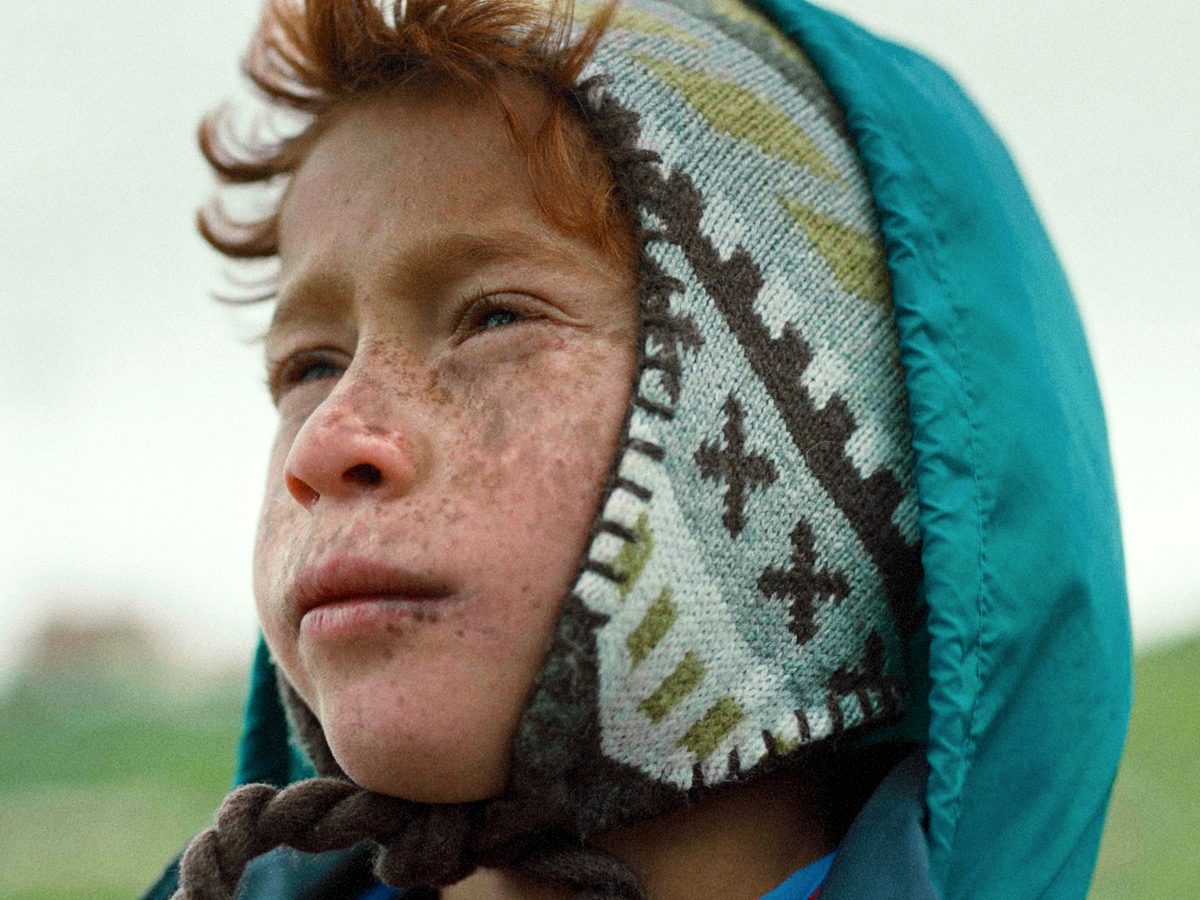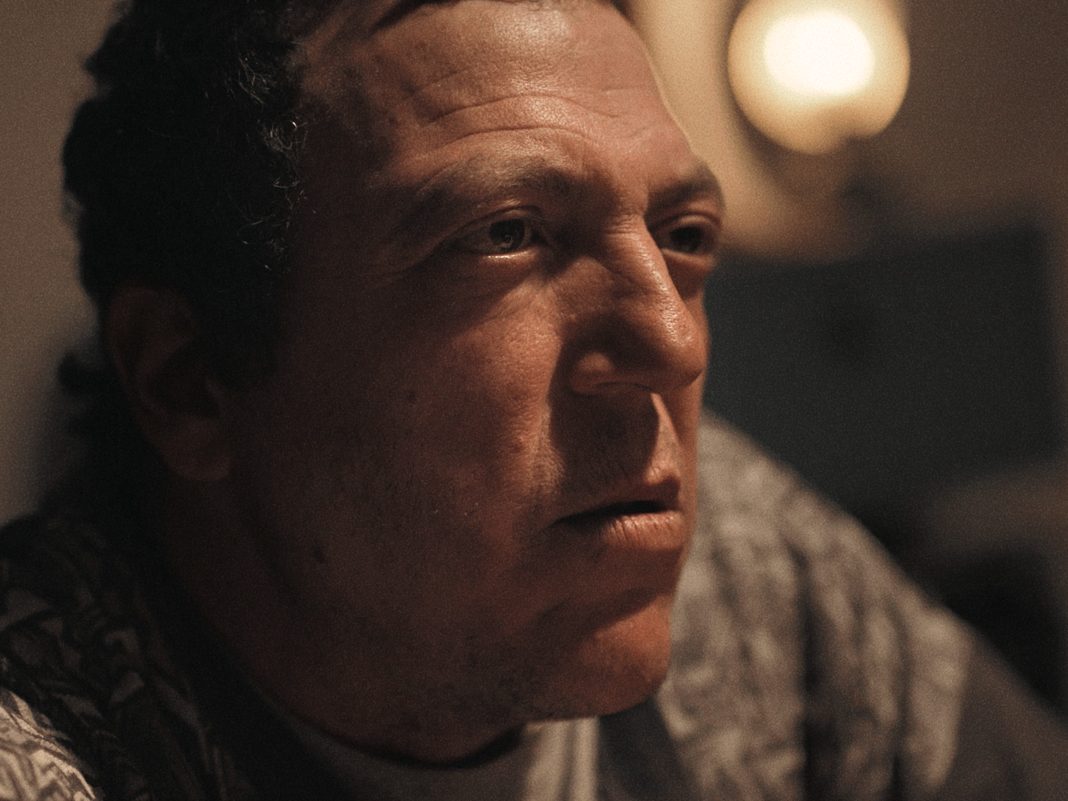With so much conflict impacting across the world, film-maker Meryam Joobeur turns to the issue of radicalization and the deep wounds that affect a Tunisian family when one of their number goes off to fight and returns home in her new short BROTHERHOOD, which was produced by the Oscar-nominated Maria Gracia Turgeon.
Assembling an amazing crew, one of whom was lucky enough to have worked on the STAR WARS and INDIANA JONES films, Joobeur fuses powerful performances and incredible locations to tell her story, which is generating much buzz on the Festival circuit, as well as the potential to hit the big-time on Oscar Night 2020.
Film And TV Now interviewed the director in which she reflects on the film and her experiences making it.
FILM AND TV NOW: The world of conflict in the Middle East is the backdrop to your film. What was the start-off point for your story?
MERYAM JOOBEUR: The journey of Brotherhood started with a chance meeting in February 2016 with two red-haired Tunisian brothers, Malek and Chaker, in rural Northern Tunisia. It was my first time in the north of Tunisia and I planned a weeklong road trip to discover more of my country.
On the third day of the trip I spotted two brothers leading a flock of sheep across a lush green hillside. The contrast of their unique faces filled with freckles against the green landscape immediately struck me and I stopped the car to see if I could take their photograph. Malek, however, was protective of his younger brother and refused. I continued on my trip but was deeply marked by their faces and the mystery of their lives.
During this trip I also learned that a neighbouring town Sejnan had experienced a surge of radicalization post the Tunisian revolution in 2011 that ousted the dictator Ben Ali. A higher than average percentage of men from the Sejnan region had gone to Syria.
This knowledge and the encounter with the brothers became the basis for the narrative of Brotherhood; a story where the eldest son of a rural family returns home from Syria and the consequences his return has on the family. I knew I wanted to address this social issue through the intimate lens of one family and I also knew that I wanted Malek and Chaker to act in the film.
So… A year later I went searching for them without knowing their names and where I had found them. I searched from village to village asking random strangers about the two redheaded brothers but was met with puzzled expressions or no leads. Then miraculously, with hope almost fading, I managed to come across the exact location where we met and found a shepherd who pointed out their house.
Excitement and nerves built as I landed on their doorstep with the script for Brotherhood. In my script I had written a role for a third, much younger brother that I thought I would have to cast but to my surprise, the first person to emerge from the house was their youngest brother, the eight-year-old Rayene, with the same red hair and freckles.
At first they were baffled by my sudden appearance and acting request but I never doubted my instinct that there was something special about them and the bond between us deepened in the weeks leading to the shoot, which took place in March 2018.
FTVN: Tell us about the cast.
MJ: The three brothers in the film are actual brothers from a family of shepherds in the north of Tunisia. Once I convinced the three brothers Malek, Chaker and Rayene to act in the film, I had to search for who could play their parents. I knew I wanted professionally trained actors and that they needed to look physically convincing since the brothers have such distinctive faces.
I felt an instant connection to actors Salha Nasraoui and Mohamed Grayaa when I met them. In the case of Mohamed it was the moment I saw his photograph online that revealed the power in his face and eyes. Salha’s natural warmth was apparent the moment she said ‘hello’ as we sat in a café to get to know each other.
Lucky for me, these two exceptionally gifted actors shared physical traits with the boys. I felt privileged to collaborate with Salha and Mohamed and was awestruck by their talent and their generosity, which made it easier for the brothers to tap into their full potential.
For the role of Reem, I held an open casting for young girls where Jasmine Yazid stood out because of the natural melancholy in her eyes.
FTVN: You shot in some very remote locations, including by the sea. Tell us about where you shot.
MJ: For much of my upbringing I was only exposed to the village where my parents are from in arid and flat mid section of Tunisia. What I knew of Tunisia was concentrated in this area so when I went on my road trip to the north of Tunisia in 2016 I was stunned to discover the lush green and diverse landscapes we see in the film.
It felt surreal to discover such visual diversity in my country and I decided to incorporate the landscape as another character in the film. The sea, the pine forest, meadows and the unrelenting wind all enhance the psychological state of the characters.
You use film to explore the ramifications of the Islamic State, at a time when the world is being affected in all areas by some of the negativity and violence that it represents. How has this context affected you, your family and friends?
No one in my immediate family or friends went to Syria but every Tunisian has heard a story of someone who has gone. All who have gone to join ISIS come from diverse socio-economic and family backgrounds. In my opinion, what connects the majority of foreign fighters who choose to leave everything behind to join ISIS is the search for a higher purpose.
So ISIS and the alarming number of Tunisian foreign fighters reiterated for me how dangerous the need for ‘purpose’ and community can be. Whenever a decision comes from a negative place of fear, insecurity or even loneliness it will never be the right choice. I also see the alarming hold of fear in current American politics, Brexit, cults and in the microscopic lives of everyone around me. I’m still grappling with how to make sense of it all, how to not feel overwhelmed by the immensity, but I hope my questioning and any insights made their way into Brotherhood or at a minimum Brotherhood can inspire audiences to face their fears of communicating to loved ones.
Family is the building block of society and I’ve chosen to start improving my ability to communicate within my own family to help build a more understanding world.

FTVN: You have a multi-cultural background. How does each aspect of this feed into your character and creativity?
MJ: I’ve described my approach to film-making as similar to quilting, bringing together all the different pieces of my identity- Tunisia, America and Quebec- to tell the stories that I want to tell. My multi-cultural background definitely gives me the ability to empathize with different realities but also be objective, which is invaluable to film-making.
FTVN: Tell us about your production team.
MJ: The production team was a mix of Tunisian and Canadian crew. Canadian cinematographer Vincent Gonneville has shot all of my films since film school. Our creative bond and friendship is vital to my filmmaking and he’s the first to be involved when a film idea is still a spark. Vincent was with me during the 2016 road trip in Northern Tunisia when I first spotted Malek and Chaker and his excitement about the encounter validated my instinct to pursue finding them.
Tunisian producers Habib Attia and Sarra Ben Hassen were the first to get on board followed by Maria Gracia Turgeon of the Canadian production company Midi La Nuit. Together we put together a small budget with the support of Doha Institute, Malmo Development Fund and Quebec arts council funding.
With our budget constraints we had to bring together a small guerrilla style team to pull off the production. Tunisian casting and assistant director Balsem was invaluable in helping me prepare the brothers for their first acting roles. Superwoman Valérie Jeanne Mathieu from Quebec juggled both Production Design, Costume Design and negotiated killer deals in Sign Language at the local markets when faced with language barriers. Tunisian Sound Fecordist Aymen Labidi captured the haunting nature sounds we hear in the film under the difficult conditions of untamable goats and roosters.
Our unit manager Mouldi had worked on over 100 sets including the sets of Fellini films, Star Wars, and Indiana Jones and regaled us with insider set stories. At the end of our shoot he was adamant that Brotherhood shoot was the hardest shooting conditions he ever experienced. I’m still wondering if Brotherhood was indeed harder than shooting in the desert for Star Wars…
I also have to give a big shout out to Ferzit ‘cricket,’ a local fisherman, and Sefri, a local farmer, who became our production assistants. The process was new and challenging for them (definitely took a while for them to understand the no sound policy while shooting!) but they gave it their all.
FTVN: BROTHERHOOD has been selected for 130 film festivals and has already won 45 awards. Your film is in contention for an Academy Award. How important is this level of recognition to you and what has been the reaction in Europe and Hollywood to the short?
MJ: It’s quite humbling to see this small labour of love have such a wide reach around the world. What has surprised me most is the resonance that Brotherhood has had in Asia where the issue of ISIS is more far removed. It’s toured all around Japan and Malaysia, which to me meant that the story is border-less. As a filmmaker I have always hoped to create border-less films so the success of Brotherhood is really moving.
I think the success in Europe and Hollywood stems from the fact that Brotherhood presents a different image of the Muslim/Arab world. I’ve had a lot of audience members tell me that they were surprised by the faces of Malek, Chaker & Rayene, surprised that faces like theirs exist in the Arab world. I think just breaking the stereotype of what Muslims/Arabs ‘look like’ can open up audiences to reflect on what other stereotypes they hold about the Arab world.
FTVN: How long did you take to shoot the film?
MJ: Brotherhood took seven days to shoot in March 2018.
FTVN: How much of an impact would you like to have in terms of changing perceptions of diversity and gender in the Visual Arts in the future?
MJ: I think just existing as a North African woman making films has a huge influence in itself. I was deeply impacted when I discovered that Mary Harron directed American Psycho and Penelope Spheeris directed Wayne’s World, subconsciously these discoveries among others broadened the range of what I saw possible as a female director.
What really breaks my heart is that exceptionally talented women and especially women of color have been lost in history. It would have meant a lot to me as a little girl to be exposed to their stories; I hungered for role models (especially in Cinema) that I could relate to on a personal and physical level.
So I will continue to exist and break any stereotype of what is expected of me in that hopes that someday my journey as filmmaker can resonate with a little girl of immigrant parents in suburban America who is not quite sure she can be a filmmaker because she’s not the usual ‘profile’ for a director.
FTVN: Finally, what are your hopes and ambitions for the future?
MJ: To keep evolving as a filmmaker and human, continue to face my fears and self-judgments and hopefully create more films that are borderless.





























